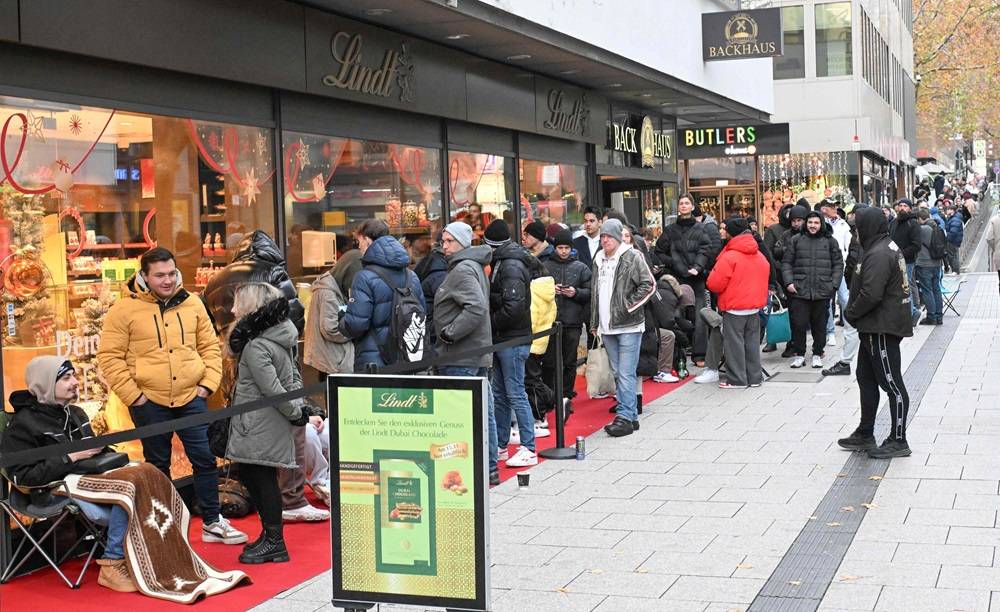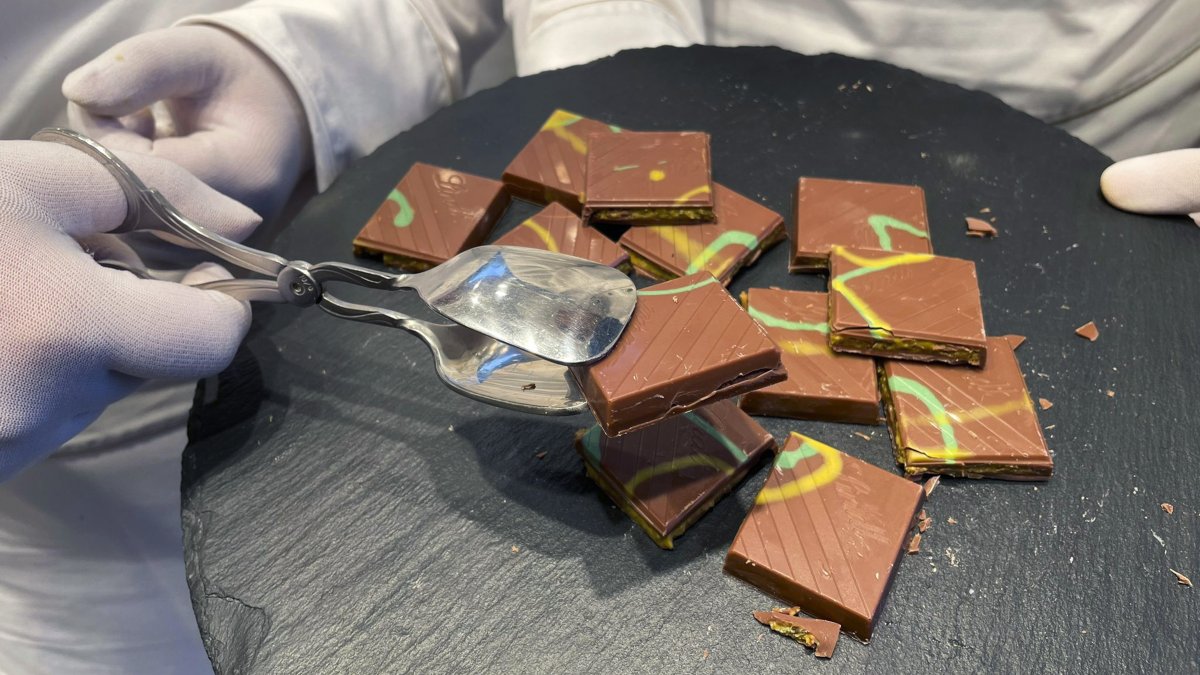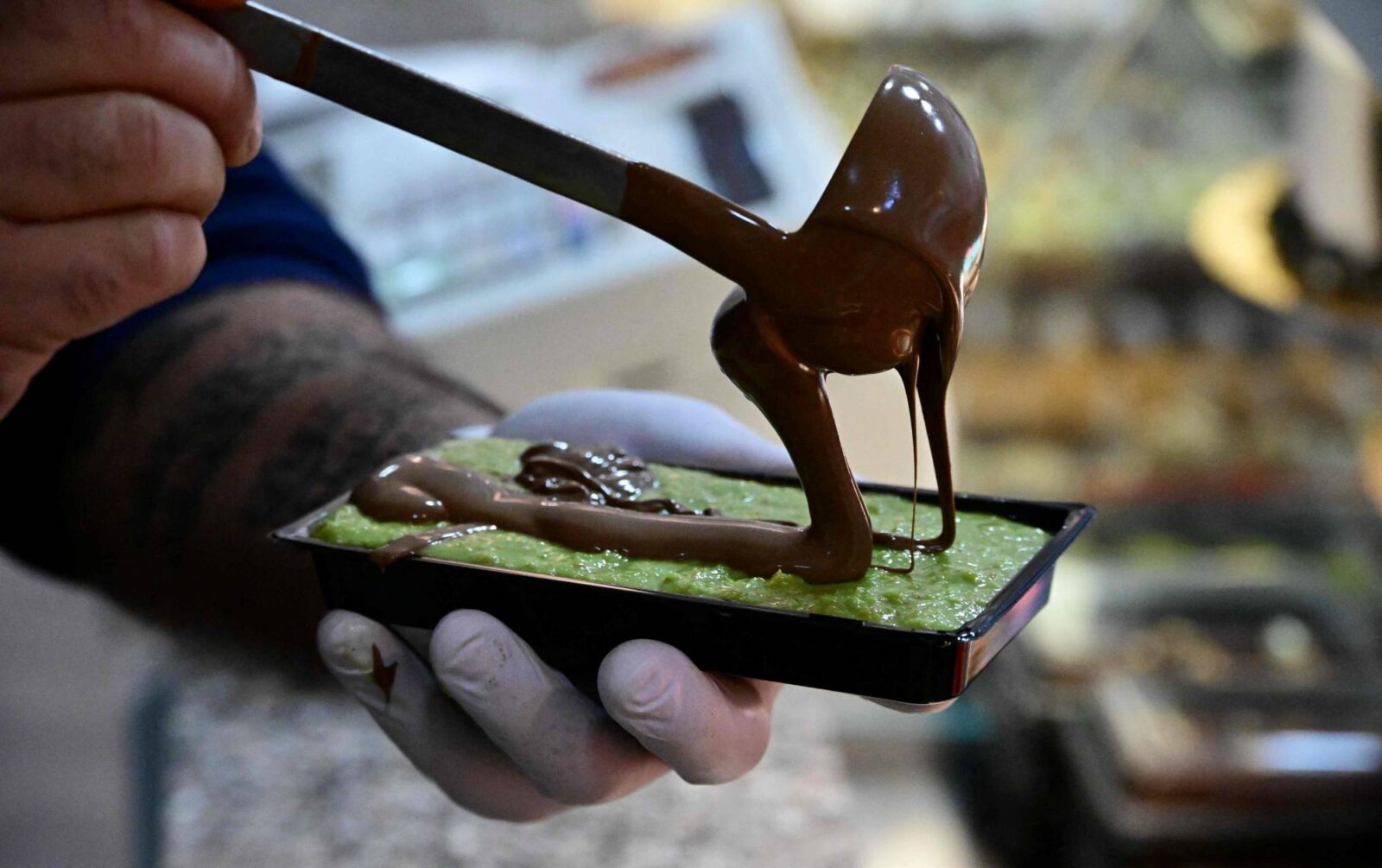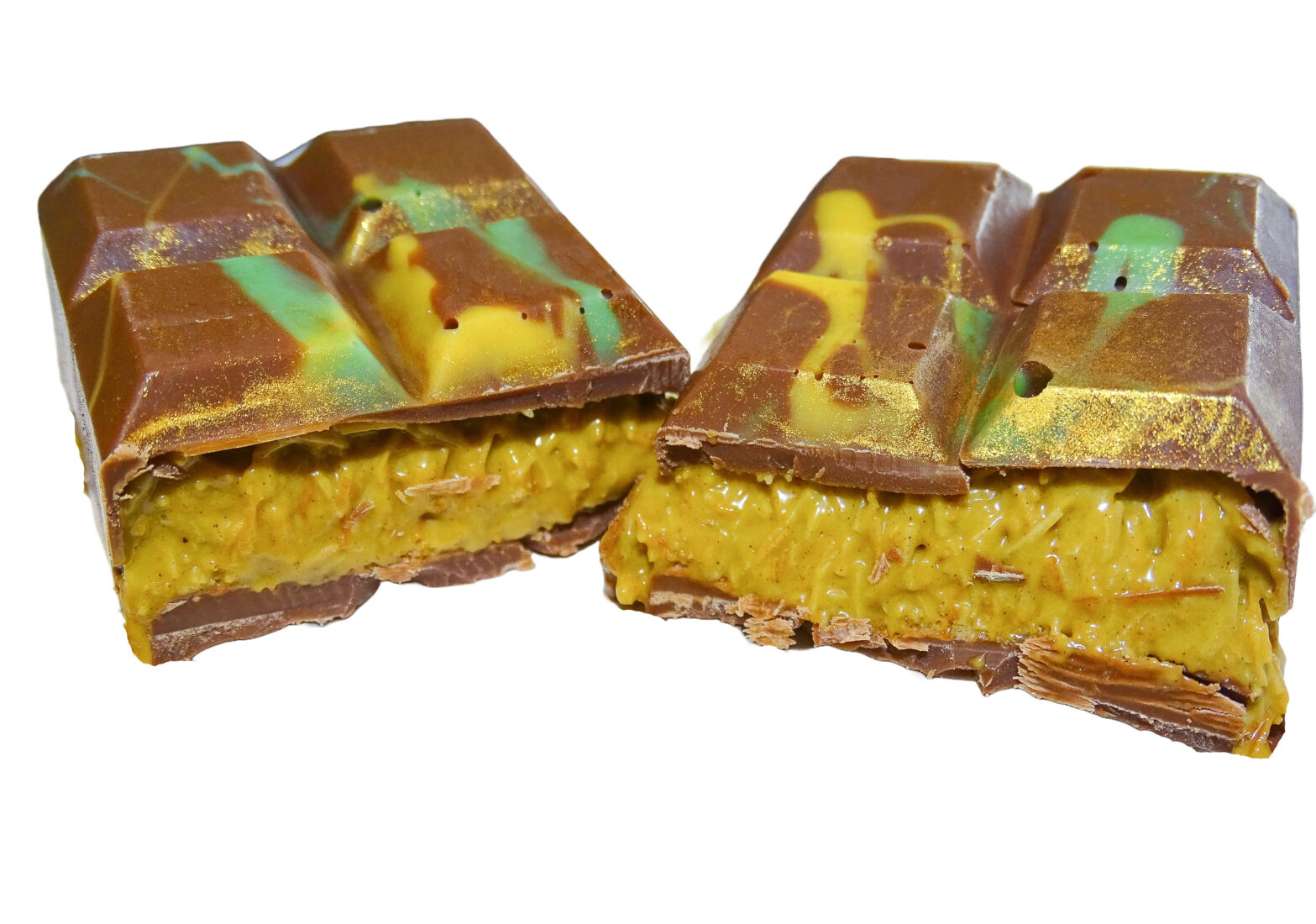
A German court has ruled that "Dubai chocolate" products must be made in Dubai, asserting that the name implies a direct connection to the Emirate.
This decision is a win for authentic Dubai-based chocolate makers and licensed importers, as it addresses the growing issue of imitation products in the market.

The Cologne Regional Court issued a temporary injunction on Jan. 13, 2025, against the German supermarket chain Aldi Sud.
The court stated, "Consumers would reasonably assume that 'Dubai chocolate' is produced in Dubai."
The supermarket faces fines of up to $260,000 if it fails to follow the court's ruling. While Aldi has not commented on the decision, the company retains the right to appeal.

Andreas Wilmers, a German confectionery importer, initiated the legal challenge.
Promotional materials for Fex Dubai Chocolate stress its authenticity, stating it is "made by hand in Dubai" using Belgian chocolate and pistachios imported due to local supply shortages.
Wilmers has filed additional legal warnings against Swiss confectioner Lindt and Lidl, accusing them of misusing the name "Dubai chocolate." These cases are ongoing.

Dubai chocolate, known for its pistachio cream and shredded filo pastry filling, has gained significant popularity in Germany. Social media platforms like TikTok and Instagram have fueled the craze, leading to long queues for limited-edition releases.
In November 2024, Swiss chocolatier Lindt launched a "Dubai Chocolate" line priced at $15.40 per bar. The company described its product as delivering "premium quality" with an authentic Dubai-inspired experience.
However, the Association of the German Confectionery Industry (BDSI) has argued that "Dubai chocolate" is now a generic term for this type of confection, regardless of origin. The Cologne court rejected this argument, reinforcing the connection between the name and the Emirate.

The decision against Aldi establishes a standard for marketing products as "Dubai chocolate" in Germany. Wilmers believes the ruling will prevent consumer deception and protect the authenticity of Dubai-produced chocolate.
In December 2024, German customs officials confiscated 90 kilograms of "Dubai chocolate" from a passenger arriving at Hamburg airport. The undeclared goods, packed in three suitcases, lacked proper labeling for allergens and ingredients. This incident underscores the broader challenges of regulating chocolate marketed under the Dubai name.
The court's decision affirms that "Dubai chocolate" must originate from the Emirate, ensuring that consumers can trust the authenticity of these products. As legal disputes continue, the future of imitation brands remains uncertain.